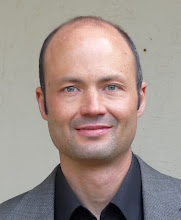'Over all, United States banks have $3.6 trillion in exposure to European banks, according to the Bank for International Settlements. That includes more than a trillion dollars in loans to France and Germany, and nearly $200 billion to Spain.
What is more, American money-market investors are already feeling nervous about hundreds of billions of dollars in short-term loans to big European banks and other financial institutions. “Apparently systemic risk is still alive and well,” wrote Alex Roever, aJ.P. Morgan credit analyst in a research note published Friday. With so much uncertainty about Europe and the euro, managers of these ultra-safe investment vehicles are demanding that European borrowers pay higher rates.
These funds provide the lifeblood of the international banking system. If worries about the safety of European banks intensify, they could push up their borrowing costs and push down the value of more than $500 billion in short-term debt held by American money-market funds.
Uncertainty about the stability of assets in money market funds signaled a tipping point that accelerated the downward spiral of the credit crisis in 2008, and ultimately prompted banks to briefly halt lending to one other.
Now, as Europe teeters, the dangers to the American economy — and the broader financial system — are becoming increasingly evident. “It seems like only yesterday that European policy makers were gleefully watching the U.S. get its economic comeuppance, not appreciating the massive tidal wave coming at them across the Atlantic,” said Kenneth Rogoff, a Harvard professor of international finance who also served as the chief economist of the International Monetary Fund. “We should not make the same mistake.” '




No comments:
Post a Comment